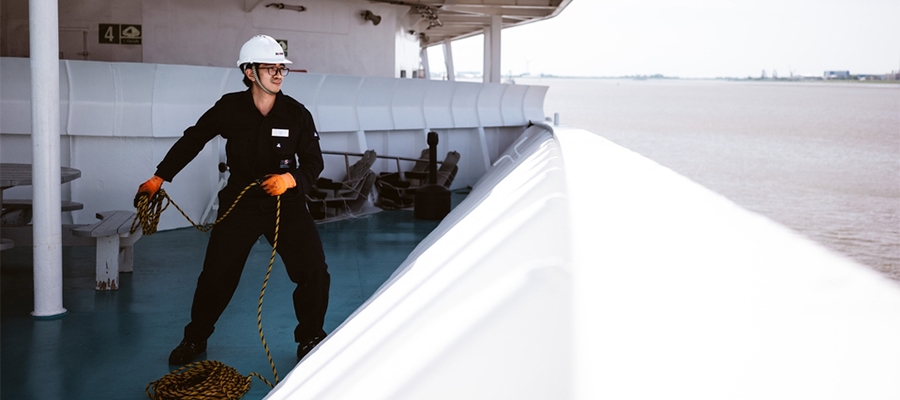What role do shipowners play in the Cadet Programme?
ER: Shipowners play a fundamental role in our Cadet Programme. They help us finance the course as well as run it. This means that the more shipowners agree to be part of the programme, the more cadets can embark during stage three of the programme and successfully complete the course.
What’s in it for the shipowners?
ER: Considering the changes that the whole maritime industry is going through, we are in this together. By allowing us the time and support we need to develop the future workforce, we can continue to offer owners highly skilled crews to manage their ships. This will help preserve the high safety standards and records on their ships in the future.
In addition, the internal development of well-trained and high-potential personnel reduces our dependence on the recruitment market, which leads to improved sustainability of manning, as well as an optimum return on investment.
What additional support do you need from shipowners?
ER: The vast majority of our customers participate in our BSM Cadet Fund, which co-finances the training and development of cadets, stages two and three of the programme. We are extremely grateful to our clients for their generosity.
On the operational side, we would like to invite all our customers to embrace our diversification strategy, prioritise competence over nationality and be open to new seafarer source markets, offering not only cadet slots but also opportunities for career development. In the end, the success of a cadet programme is measured by retention and career progression.
As it gets harder to recruit crew members from the traditional seafarer nations, our cadets and crews are inevitably becoming more diverse. The more cadets we train, the more qualified, resilient and sustainable our workforce of the future will be. This is to everyone’s benefit.










